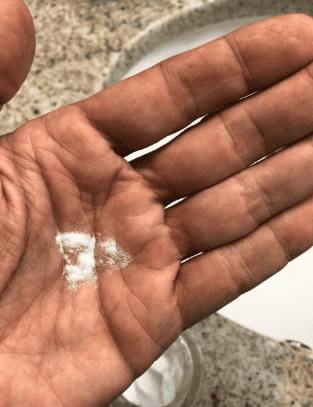
Sprinkle this into your water to reduce inflammation, prevent Alzheimer's, and help kill cancer cells

There's a cheap powder that you buy at any grocery store...
And just a pinch will naturally turn your normal tap water into a powerful elixir...
That has the power to raise men's testosterone and lower harmful estrogen...
...give you a natural energy boost...
...reduce inflammation all over the body...
...repair and balance the gut...
...lower anxiety and raise the spirits...
And most importantly, it can cure the two biggest scourges on the planet...
...cancer and Alzheimer's disease...
Here's the cheap ordinary powder you just sprinkle in your water
Warmly,
--Matt Cook
Matt Cook is a health researcher who has helped over 600,000 men restore bedroom confidence and regain control of their health and virility.
lithic sites in the area also follow similar flint tool types, following what has been called the 'Arabian bifacial tradition', a commonaility in tool types found throughout the Arabian Peninsula. Many Neolithic coastal sites are also associated with finds of Ubaid era (5,500-–3,700 BCE) decorated Mesopotamian pottery, testament to early trading links along the coast from the North. Despite extensive finds of Ubaid pottery, there is no evidence of the emergence of a local ceramic industry until the late Neolithic. Neolithic sites of significance in the Emirates include those at Khatt, Akab Island, Tell Abraq, Mleiha, Madam, Qarn bint Saud, Al Ain, Dalma and the Wadi Haqil in Ras Al Khaimah. The inland necropolis at Jebel Buhais in Sharjah is the oldest in the Emirates and features burials from 5,000 BCE onwards, with graves at the site thought to be those of nomadic herders who travelled inland for the winter season. Many of the burials at Buhais include grave goods such as flint tools, shell and coral jewellery as well as beads of chert, agate and limestone, all of which are found locally, as well as carnelian. The site of Akab Island provides unique insights into what are thought to have been early ritualistic practises, with a unique dugong bone mound discovered there, which not only has no direct parallel in the region but also stands as a rare (possibly unique) find dated to the 'Dark Millennium'. The mound consists of structurally aligned dugong bones, representing over 80 dugongs, littered with jewellery and other artef
